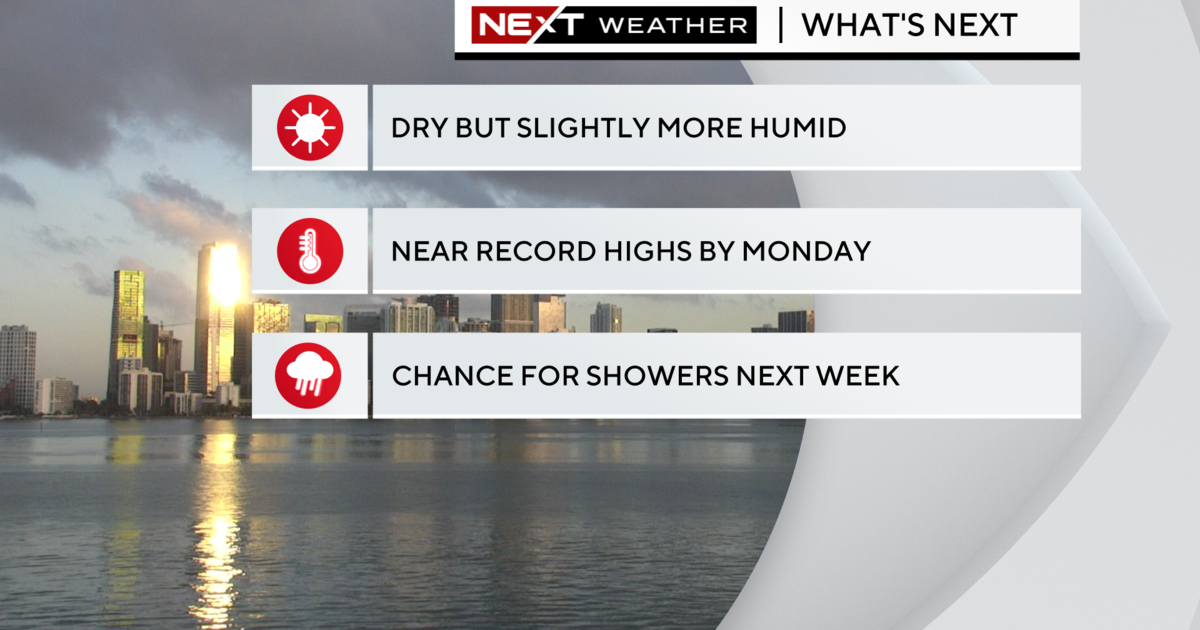Hurricane Maria Slowly Moving Away From U.S. East Coast
Follow CBSMIAMI.COM: Facebook | Twitter
MIAMI (CBSMiami) – Hurricane Maria is slowly turning towards the east, away from the U.S. coast.
At 5 p.m. Maria was located about 205 miles east-northeast of Cape Hatteras, North Carolina.
The storm is moving toward the north-northeast near 7 mph, and this motion is expected to continue Wednesday.
Maria is forecast to accelerate east-northeastward on Thursday and Thursday night.
On the forecast track, Maria will begin to move away from the coast of North Carolina later today and tonight.
Reports from an Air Force Reserve reconnaissance aircraft indicate that the maximum sustained winds are near 75 mph with higher gusts. Some weakening is forecast during the next 48 hours.
Hurricane-force winds extend outward up to 105 miles primary to the northeast of the center, and tropical-storm-force winds extend outward up to 230 miles.
An observing site at Jennette's Pier in Nags Head, North Carolina, recently reported a sustained wind of 43 mph and a gust of 51 mph.
The estimated minimum central pressure based on reconnaissance aircraft data is 978 mb.
SUMMARY OF WATCHES AND WARNINGS IN EFFECT
A Tropical Storm Warning is in effect for...
* Cape Hatteras to the North Carolina/Virginia border
* Albemarle and Pamlico Sounds
HAZARDS AFFECTING LAND
WIND: Tropical storm conditions are expected within the warning area through today.
STORM SURGE: The combination of a dangerous storm surge and the tide will cause normally dry areas near the coast to be flooded by rising waters moving inland from the shoreline. The water is expected to reach the following heights above ground if the peak surge occurs at the time of high tide...
Ocracoke Inlet to Duck including the sound side of the Outer banks...2 to 4 ft.
Surge-related flooding depends on the relative timing of the surge and the tidal cycle, and can vary greatly over short distances.
SURF: Large swells generated by Maria are affecting much of the east coast of the United States, Atlantic Canada, Bermuda, the Bahamas, and the Turks and Caicos Islands. These swells are likely to cause life-threatening surf and rip current conditions.



